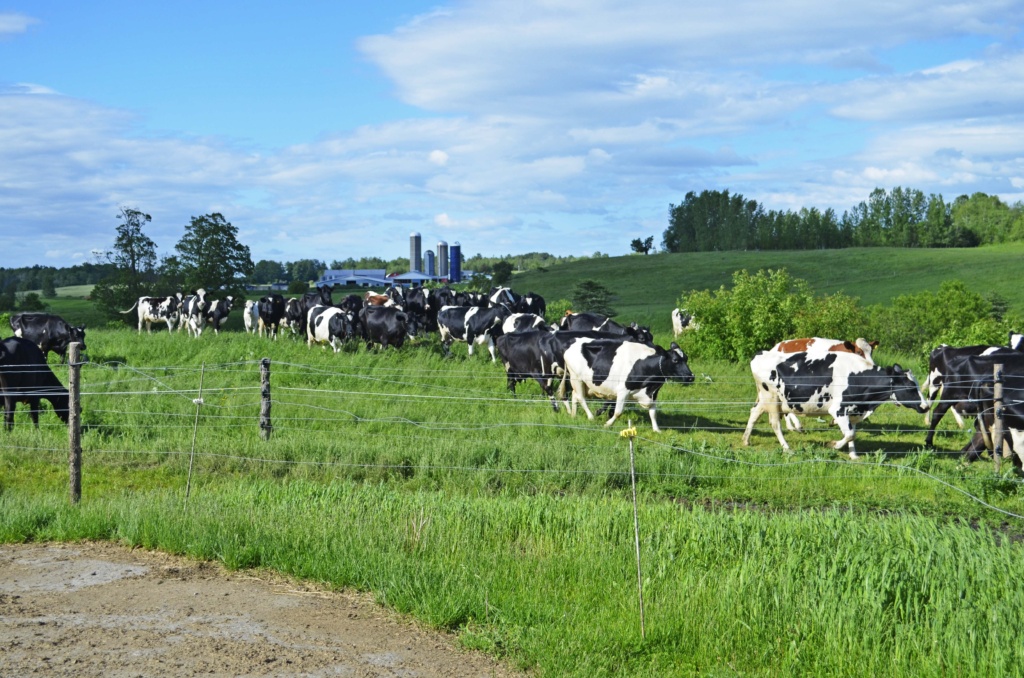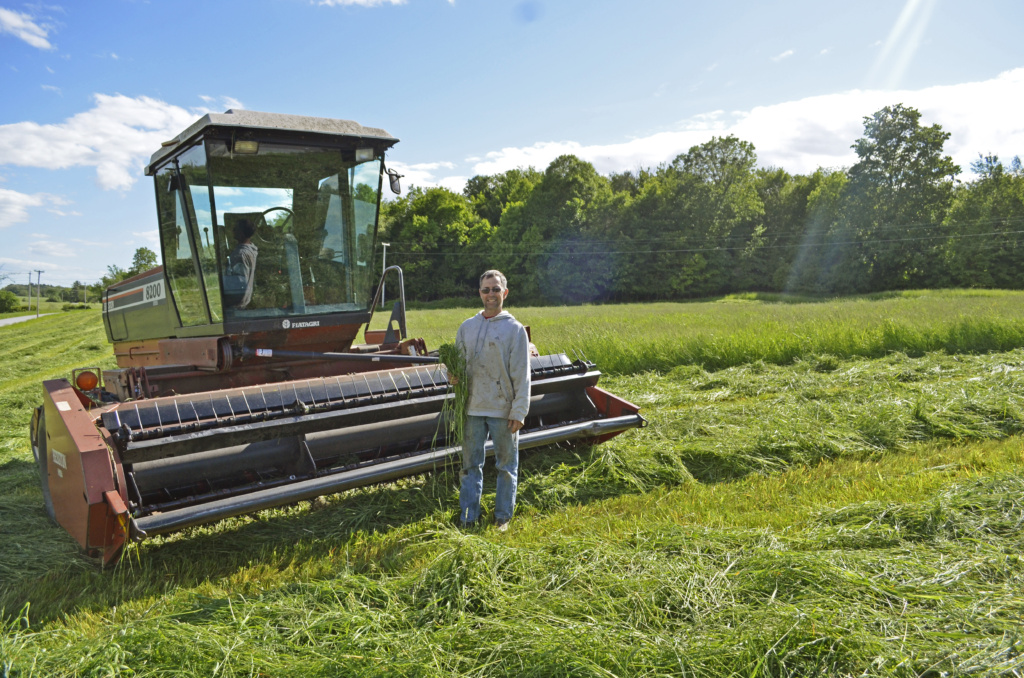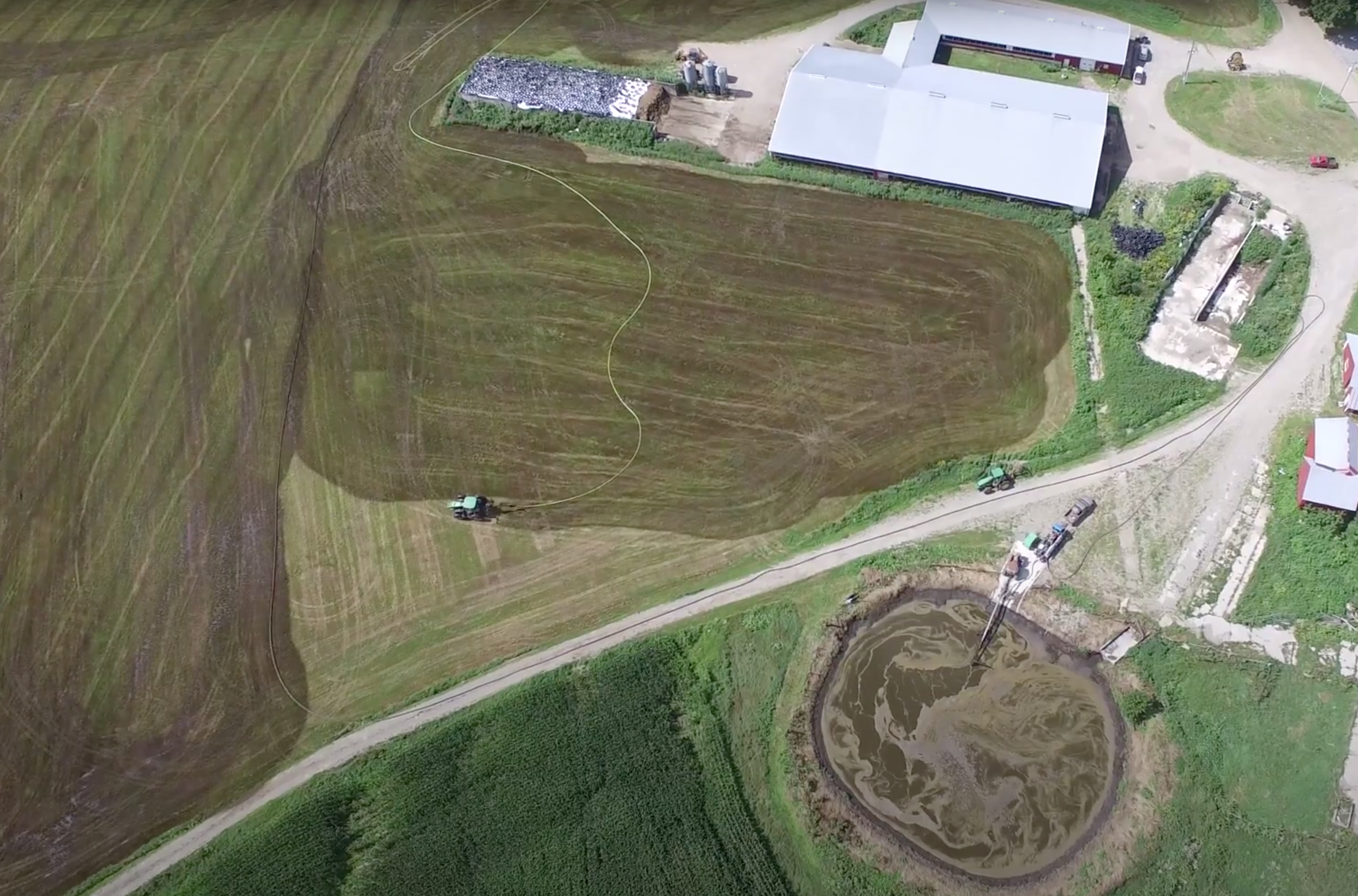CHOINIERE DAIRY FINDS NICHE MARKETS
Photos and Story by Ruthie Laroche
There was a time in Vermont’s history when the number of cows outweighed the number of people in the state and family owned dairy farms dotted the fields and hills.
Falling milk prices have taken a toll on the family owned dairy farms, but while the future for many small farms may seem uncertain, there are still options out there for those who choose to explore them.
“I don’t think it’s a bad occupation; I think there’s a lot of future for the next generation. I do feel that the dairy part is becoming saturated, but there are still some niche markets, which we are a part of. We are certified organic, grass milk, so that’s a niche over a niche, and that’s paying off well,” said Guy Choiniere.
“Vermont has always been suited well for small farms. I think if the kids or the young farmers can realize that bigger isn’t always better and that they can concentrate on producing good quality products there is a chance for growth,” said Guy.
[bar group=”86″]
“There’s a lot of interest in our communities to move some of those products. We’re blessed here in Vermont to have very nutrient dense soil, and that means that our food follows the same pattern.” He feels that those who can capitalize on that have the opportunity to succeed.”
Guy’s father’s family came across the Canadian Border in the 1930’s. His grandfather purchased a farm in Highgate and settled there to raise his family. The land in Highgate was very sandy, which proved to be a challenge for the farmers, but it also meant that land was cheap.
Guy’s grandfather and his father worked diligently to increase the fertility of the soil on the farm.
Eventually, the Choiniere family started buying milking equipment, and in 1945 Guy’s grandfather bought the farm Guy and his family call home. “It’s been a great thing. We’ve turned a poor farm into something very respectable, and now it’s just a maintenance piece. We found out how to manage sand,” Guy said, holding up a fist full of freshly mowed hay, the stems thick and green.
In 1965 Guy’s father decided to buy another farm, the 150-acre LeBombard farm on the Tarte Road. The purchase of that farm came at a time when farming trends were moving away from the all-grass herd to growing more row crops that would help the cows produce more milk.
His father’s generation saw the introduction of genetics as a tool to increase milk production through feed intake. “My grandfather knew how to keep a cow around forever. He paid the bills, but he didn’t make a lot of milk. When my father’s generation came around the goal was to make more milk per cow to pay for bills as the taxes and expenses of farming increased,” said Guy.
[bar group=”86″]
 This method of farming kept the cows in the barn as much as possible so they exerted the least amount of energy and could concentrate on making milk.
This method of farming kept the cows in the barn as much as possible so they exerted the least amount of energy and could concentrate on making milk.
After Guy graduated from school and got closer to the time he would take over the farm, he knew he would have to find a way to keep the small farm viable. He began to investigate the option of switching from the conventional farming methods he knew and switching to the organic market. In 2005, after meeting the regulation requirements, the farm shipped its first load of organic milk.
Read the full story in this week’s County Courier available on newsstands now.








